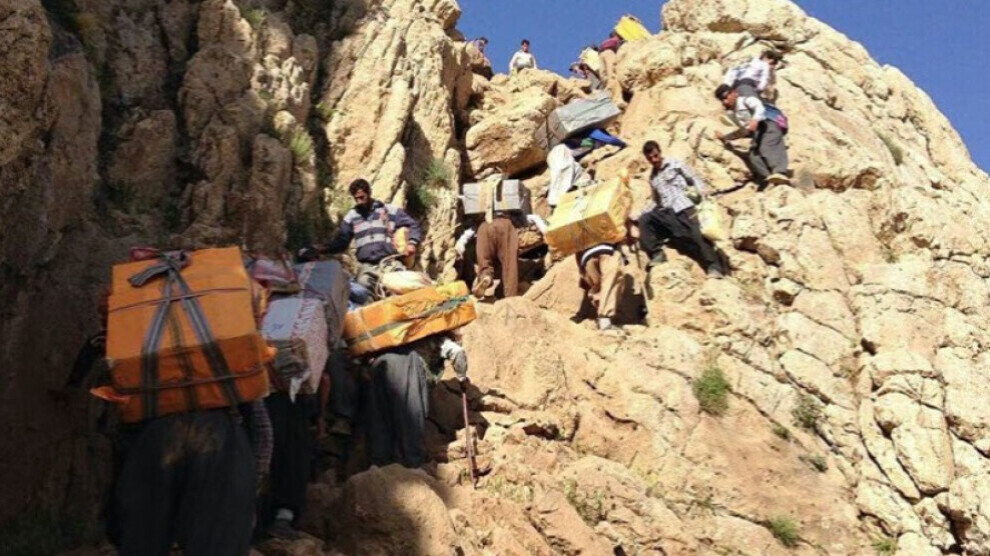Another Kurdish kolbar killed by Iranian forces
The Iranian regime forces continue their deadly attacks against load carriers with impunity.
The Iranian regime forces continue their deadly attacks against load carriers with impunity.

Kolbars are Kurdish civilians who have to do border trade by risking their lives in the difficult geographical conditions of Eastern Kurdistan. Frequently targeted by the Iranian regime, kolbars continue to struggle for their lives due to harsh living conditions and attacks by regime forces.
Kolbarnews reported that 31-year-old Kurdish kolbar Arman Alizade was killed by Iranian forces in the village of Dûplûre, on the border of the Serşîw region of Mariwan city, yesterday.
According to the report, Arman Alizade came from the village of Gogce in the rural area of Mariwan city in Eastern Kurdistan. Arman Alizade was married and the father of two children.
Background
Eastern Kurdistan has descended deeper into poverty through the years due to deliberate policies by the Iranian regime and stands out as one of the poorest regions in Iran. Compared to other regions, the area has seen significantly less investment and development has been deliberately curbed. Agriculture and industry weren’t allowed to develop, and as a result, unemployment rose to the highest in Iran.
Faced with policies of discrimination, oppression and impoverishment, carrying smuggled goods is not a choice but a must for survival.
Kolbar comes from the Kurdish words, “kol” (back) and “bar” (load). Kolbars make their living carrying loads along the perilous borderline. Their loads include cigarettes, mobile phones, clothes, housewares, tea and seldomly alcohol. They walk through dangerous terrain to continue this trade between Southern and Eastern Kurdistan. The goods they bring are sold at high prices in Tehran, but the kolbars who risk their lives for them are paid very modestly.
The intermediaries who take the deliveries and find buyers in cities are called kasibkars. Kolbars and kasibkars range from 13 to 70 years old. Some only finished elementary school, while others are university graduates. They carry loads, because they can’t find any other employment.
According to the Kurdistan Human Rights Network, 51 Kurdish kolbars were killed and 246 others were injured by the Iranian regime in the border regions of Urmia, Bane, Serdasht, Pawe and Kermanshan throughout 2024.